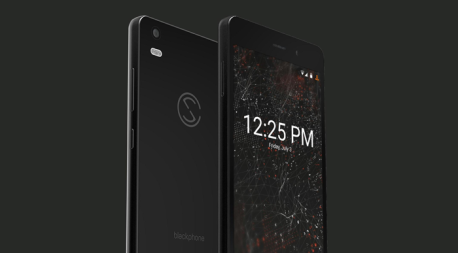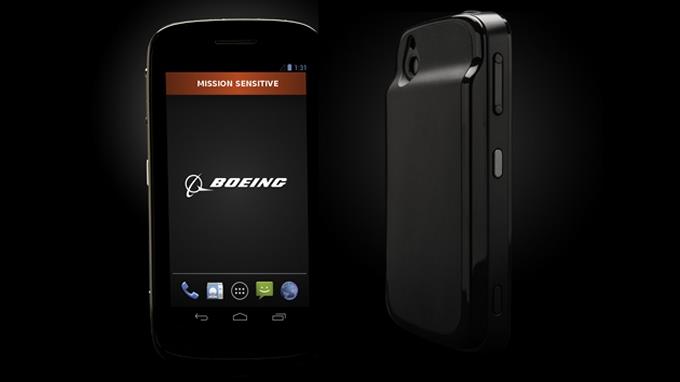
From Apple Pay to remote car start-up apps, the number of digital services tied to smartphones have steadily increased, rendering smartphone security flaws a more serious threat to consumers than ever before. Whether it’s a massive bug in iOS or insecure passcodes on our phones, privacy has become a hot topic of concern in the smartphone industry, with many companies competing to try and mitigate the threat.
Siren Labs, a new Swiss-Israeli start-up, is offering a $14,000 Android smartphone called the Solarin, capable of providing a military-grade “shielded mode” that fully encrypts calls and messages. The Smartphone runs on modified version of Android 5.1 Lollipop that’s been heavily customized for security.
During their two years of development, Siren Labs outfitted Solarin with Zimperium’s mobile threat protection app, and partnered with KoolSpan to integrate chip-to-chip 256-bit AES encryption. As a result, the hardware-based encryption transfers data to and from an integral encrypted chip and is automatically encrypted/decrypted through the built-in AES chip in the phone, making it much more secure and faster than a software-based encryption system.
Additional security features include a Security Switch on the back that activates a shielded mode where users can make calls and send messages that are fully encrypted. Besides security, one of the other key benefits of the Solarin is connectivity. The entire phone runs on Snapdragon 810 mobile processor, and phone is capable of 450Mbps download speeds and supports 24 LTE bands, in addition to 802.11ad gigabit Wi-Fi.
For potential American consumers, the phone’s 450Mbps capabilities might be wasted money, as broadband speed is dependent on the amount of spectrum allocated by the telecom operator, and spectrum in the United States is often licensed in 10MHz chunks. While chip maker Qualcomm and network manufacturer Ericsson successfully demonstrated 450Mbps speed using three separate 20MHz LTE channels through carrier aggregation, subscribers are unlikely to see 450Mbps any time soon.
What’s more, the smartphone packs 4GB of RAM and includes 128GB of built-in storage. It also includes an on board 4040mAh battery that supports Qualcomm Quick Charge for fast charging.
Other features include a 5.5-inch Corning Gorilla Glass 4 IPS LED display with 2K screen resolution and 23.8-megapixel rear camera. Three speakers are boosted by a built-in amplifier. Solarin’s chassis is constructed from a metal matrix composite that incorporates titanium panels for structural strength, and the option of black or white leather back with customizable titanium, carbon, or gold edges.
The phone weighs 250 grams —approximately just over half a pound—with an equally hefty price tag starting at $13,900. Commenting on the launch, Moshe Hogeg, President and Co-founder of Sirin Labs said, “We do not accept that price drives what's available in technology. With Solarin, we break the rules.” The phone goes on sale June 1, and is available at Siren’s retail store in London and online.
Solarin hardware vs high-end security smartphones

One of Solarin’s predecessors and rivals, the Blackphone 2 by Silent Circle, provides similar structure to the new phone, sporting a 5.5-inch FullHD Gorilla Glass Display and features Quick Charge 2.0 for fast charging. The phone comes preloaded with Silent OS, and Android-based operating system free of bloatware, hooks to carriers, and leaky data, as well as the entire suite of Silent Circle’s encrypted text messaging and calling apps. The phone runs on Qualcomm Snapdragon 615 platform and has 3GB of RAM and a mere 32GB of built-in storage when compared to the Solarin. Blackphone 2 costs $800.

Other top security smartphone competitors include the Boeing Black, another Android operating smartphone with enhanced security software. The 4.3-inch display is considerably smaller compared to its rivals, but offers large security features to protect the 2GB of RAM and 16GB internal storage. The smartphone comes with trusted data transmission and embedded hardware media encryption for connections to both classified and unclassified networks, making it a top choice for U.S. defense and security customers. Black runs a Dual 1.2GHz ARM Cortex A-9 processor providing high efficiency and highly configurable L1 caches. Beyond the standard, the specific hardware and software architecture of each phone is designed to be variously configured depending on the mission at hand. If tampered with, the phone is set to self-destruct, making the Boeing Black a “disposable” smartphone option at $629.
Sources: PC, Integral, ComputerWorld, Gadgets, ZDNet
Advertisement
Learn more about Electronic Products Digital





